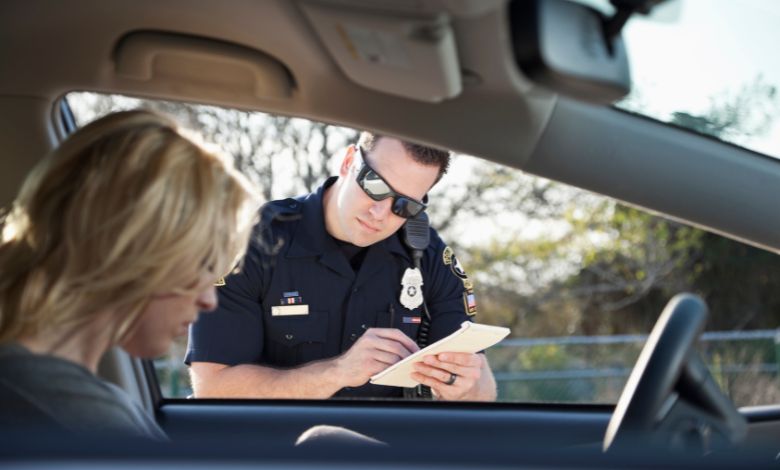Learn how long does speeding ticket stay on record and its impact on insurance rates. Get clear answers to your questions.
Receiving a speeding ticket is never something you want. If you have recently been pulled over and ticketed for speeding, you’re probably thinking: How long does speeding ticket stay on record? and How will it affect my insurance? The answer will vary by your state and can have more severe repercussions than a fine, especially if the violation happened on dangerous highways.
Here in this article, we will break down everything you would like to know about speeding ticket’s time on record in all states, their impact on your driver’s license and what it does to your auto insurance prices. We will also offer some personal tips and recommendations to help you navigate speeding ticket’s consequences. Let’s start then.
Article Breakdown
My Experience with a Speed Citation (And What I Learnt)
Not until years later did I ever get my very first speeding ticket. I wasn’t speeding like a stunt driver down the highway at all but driving a little bit too fast in a newly designated zone that had just been cut back to 40 mph from 55 mph. Before I could even think twice, I had lights in my rearview window. The officer handed me a ticket and my stomach fell. Early on I was more worried about the fine. But after I had more information about it, I realized that actually it would have a long-term impact, on my driving record, insurance rates, and even my ability to negotiate a good deal on a auto loan. It was then that I investigated thoroughly into the information, and I am here to tell you all that I found information on the length of time that speeding tickets can stay on your record.
How Long Will a Speeding Citation Stay on My Driver’s License?
Speed tickets and their attendant points will be on your record in a majority of states three to five years. The time will depend on your state and violation severity. If you would like to find out how long speeding ticket will remain on record in your state, here’s a state-by-state breakdown:
| State | Length of Time a Speeding Ticket Stays on Your Driving Record |
|---|---|
| Alabama | Permanently (Two years for license suspension) |
| Alaska | One year |
| Arizona | One year |
| Arkansas | Three years |
| California | Three years and three months |
| Colorado | Seven years (Two years for license suspension) |
| Connecticut | Three years |
| Delaware | Two years |
| District of Columbia | Two years |
| Florida | Five years |
| Georgia | Two years |
| Hawaii | 10 years |
| Idaho | Three years |
| Illinois | Four to five years |
| Indiana | Two years |
| Iowa | Five years |
| Kansas | Three years |
| Kentucky | Five years on record, points removed after two years |
| Louisiana | Three years |
| Maine | One year |
| Maryland | Three years |
| Massachusetts | Six years |
| Michigan | Two to seven years |
| Minnesota | Five to 10 years |
| Mississippi | Three years |
| Missouri | Three years |
| Montana | Points removed after three years (conviction permanent) |
| Nebraska | Five years |
| Nevada | Points removed after one year (conviction permanent) |
| New Hampshire | Three years |
| New Jersey | Points can be reduced after one year with an approved driving course (conviction permanent) |
| New Mexico | One year |
| New York | Points removed after one year and six months (conviction for three years) |
| North Carolina | Three years |
| North Dakota | Three to five years |
| Ohio | Two years for suspension (incident on record permanently) |
| Oklahoma | Three years |
| Oregon | Two years |
| Pennsylvania | One year |
| Rhode Island | Three years |
| South Carolina | Up to five years |
| South Dakota | Three years |
| Tennessee | Points removed after two (conviction up to five) |
| Texas | Three years |
| Utah | Three years |
| Vermont | Two years |
| Virginia | Five years |
| Washington | Three to five years |
| West Virginia | Five years on record, points removed after two years |
| Wisconsin | Five years |
| Wyoming | Four years |
To find out how long a speeding ticket will remain on your driving record in your state, you can call your state’s local Department of Motor Vehicles (DMV) to find out current information.
How speeding tickets impact your driver’s license
Not only do you pay fines with speeding tickets, but you can also receive points against your driver’s license. Most states have a point system that enables violations to accumulate over time and can result in license suspension if you have enough.
For example in some states:
- 1-10 mph over speed limit = 3 points
- More than 30-40 mph over speed limit = 5
- Multiple offenses within a brief time span = License suspension likely
These do not affect your driving abilities alone, they also raise your insurance rates and your career opportunities that require a good driving record become more daunting. If you have ever had questions regarding how long does speeding ticket stay on record until it affects your insurance, read on.
Speed tickets have several different effects on auto insurance.
Another important monetary impact of a speeding ticket is to your car insurance. Insurers consider your driving record to calculate that you represent a risk to insure. If you have speeding tickets on your driving record, your insurance premiums will increase.
How Long Will It Take a Speeding Citation to Hit Insurance?
Typically you will be affected at renewal date with your insurance. Your insurance company will review your risk level at renewal and raise your premium. But some do forgive a first offender, so it’s worth checking with your company. If you have a good driving record after your ticket and you take a defensive driver’s class, your rates can actually decrease over time. If you worry that speeding tickets will be on your record forever until your insurance rates decrease, it’s usually three to five years.
My Personal Experience
My rate went up by around 15% after my very first ticket. I was shocked to say the least. I went to a defensive driving class and drove cautiously over a few years. My rate again settled to normal after some time. If you’re in your situation, my advice would be: don’t freak out but do something. The good news is speeding ticket on record length varies in every state and you can bounce back. Here’s what you can do to reduce the effect of a speeding ticket: If you already have a ticket, here’s what you can do to reduce its effect:
- Take a Defensive Driving Course: In some states you can have your penalty points erased or insurance penalty fees cancelled if you take a state-approved driving school.
- Challenge It in Court: If you were unfairly ticketed, you can contest it in court and it can be dismissed or minimized.
- Search For Ticket Forgiveness Plans: Some states and insurance companies have ticket forgiveness schemes that forgive a first offender.
- Be Safe on the Road: The best way to not be fined in the future is to drive cautiously and obey speed limits.
Key Takings:
- Speed tickets aren’t something to take lightly, there can be long-term consequences to your license, record, and insurance rates.
- The good news? The effect is temporary if you take proactive action to repair your driving record.
- If you recently got a ticket, take it as a learning opportunity. Trust me, I’ve been in your shoes.
- Drive responsibly, learn your lesson, and make good choices to defend your record. And if you ever find yourself wondering How long does speeding ticket stay on record, you’re not alone here.
- Have you ever gotten a speeding ticket? Share your story in the comments below!
Additional Resources:
- State Department of Motor Vehicles (DMV) Websites: Each state has its own DMV website that contains specific information about traffic violations.
- Nolo – Legal Information Resource: Nolo is a trusted legal website that provides practical information about traffic violations, including how long they stay on your record and how they may affect your driving privileges.
- FindLaw – Traffic Ticket Information: FindLaw provides comprehensive legal information, including details about traffic tickets, their impact, and how long they appear on your record.



